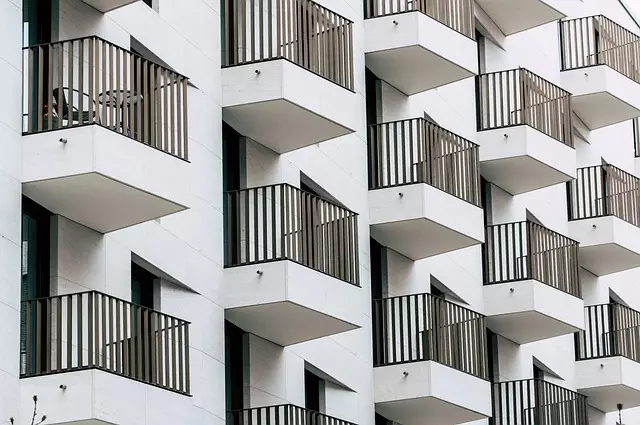House sitting is an essential service within property management that provides a personalized touch by maintaining homes as if their regular inhabitants never left. It involves a dedicated onsite presence to handle routine maintenance, security checks, and address any unique issues, ensuring the integrity of the home is preserved. House sitters understand and respect each property's nuances, offering a level of care that goes beyond standard management practices, thereby fostering trust and confidence between property managers and owners. This service not only safeguards properties but also provides peace of mind to homeowners who are away, with the assurance of a competent and conscientious house sitter looking after their abode. It transcends traditional property services by offering tailored care that respects privacy and upholds security, making it a valuable option for those seeking a reliable alternative to unoccupied homes, which are at risk for security breaches and damage. House sitting is a testament to the evolving demands in property management, positioning itself as a key differentiator and revenue opportunity for service providers aiming to enhance client satisfaction.
Exploring the nuanced art of property management with a personal touch, this article delves into the multifaceted role of house sitting, a practice that offers both homeowners and property managers invaluable peace of mind. Through a series of insightful sections—from “Embracing the Responsibility: The Role of House Sitting in Property Management” to “The Growing Trend: How House Sitting Can Benefit Both Homeowners and Property Managers”—we’ll uncover the essential tasks, responsibilities, and relational dynamics that define this unique service. Join us as we highlight the importance of trust and transparency, the skill set for success, and the delicate balance between privacy and vigilance inherent in house sitting. This personalized approach to property management not only safeguards properties but also fosters strong, mutually beneficial relationships within the community.
- Embracing the Responsibility: The Role of House Sitting in Property Management
- A Day in the Life: The Personal Experience of Being a House Sitter
- Trust and Transparency: Building Relationships with Homeowners as a House Sitter
- Skill Set for Success: Essential Tasks and Responsibilities in House Sitting
- Balancing Privacy and Vigilance: Maintaining Your Own Boundaries While Caring for Others' Homes
- The Growing Trend: How House Sitting Can Benefit Both Homeowners and Property Managers
Embracing the Responsibility: The Role of House Sitting in Property Management

House sitting represents a critical component in the realm of property management, offering a unique blend of oversight and personal touch that is often necessary for maintaining a home as if its occupants never left. As caretakers of these residences, house sitters play an indispensable role, responsible for the day-to-day upkeep and security of properties in diverse locations. This hands-on approach ensures that every nook and cranny is attended to with the utmost care, from routine maintenance tasks to more complex issues that may arise. The personal engagement involved in house sitting extends beyond mere physical upkeep; it encompasses understanding the nuances of each property, from its unique systems to the idiosyncrasies of its architecture. This level of familiarity and responsibility fosters a deep connection with the property, often leading to a more conscientious caretaking experience that goes above and beyond the typical property management duties. By embodying the essence of stewardship, house sitters provide property owners with peace of mind, knowing their homes are safeguarded and managed with a personal touch that only a dedicated presence can offer. This approach not only preserves the integrity of the properties but also contributes to the trust and confidence between property managers and homeowners.
A Day in the Life: The Personal Experience of Being a House Sitter

During a typical day as a house sitter, one embraces a unique blend of responsibility and the quiet solitude that comes with caring for an empty home. The role demands attentiveness to routine maintenance, ensuring that the property remains secure and well-maintained. Upon waking, the sitter starts by opening curtains to let in sunlight, fostering a welcoming environment that deters any lingering shadows of abandonment. Security checks are a priority, as one walks through each room, verifying locks are secured, alarms are set, and windows are sealed against the elements.
The personal experience of house sitting is not merely about safeguarding assets; it’s about preserving the sanctity of a space that temporarily feels like home to someone other than its owners. Throughout the day, the sitter may tend to plants, their hands nurturing greenery that thrives under careful attention. Meal preparation becomes an act of stewardship, as one cooks in the kitchen, perhaps using recipes left behind by the homeowners. In this role, the house sitter’s presence is a balancing act between being visible enough to deter any mischief and discreet enough to respect the privacy and lifestyle of the absent residents. It’s a day steeped in routine, care, and a personal touch that ensures the house not only remains unharmed but also feels lived-in and cherished. This level of individualized care is what sets exceptional house sitting apart from mere property management.
Trust and Transparency: Building Relationships with Homeowners as a House Sitter

When it comes to property management, establishing a foundation of trust and transparency is paramount, especially in the context of house sitting. A seasoned house sitter serves as an ambassador for homeowners, ensuring their properties are not just safeguarded but also maintained with care. This personal touch transcends mere occupancy; it involves a deep understanding of the property’s unique needs and the homeowner’s expectations. By maintaining open lines of communication and providing detailed reports on the property’s condition, house sitters foster a sense of security and reliability that goes beyond routine check-ins. Their role is multifaceted, encompassing everything from monitoring the premises to handling basic maintenance tasks with precision. This personalized approach to house sitting not only alleviates the concerns of homeowners but also solidifies long-lasting relationships built on mutual trust and understanding, setting a new standard in property management services. Engaging a house sitter who embodies these qualities can provide peace of mind for those who entrust their homes to someone while they are away, knowing that their property is in capable and trustworthy hands.
Skill Set for Success: Essential Tasks and Responsibilities in House Sitting

Engaging in house sitting requires a diverse set of skills and responsibilities that blend the attributes of a responsible caretaker with those of a meticulous manager. A successful house sitter must be adept at maintaining the property’s security, ensuring its upkeep, and managing day-to-day tasks with minimal supervision. This role demands vigilance to safeguard the home against potential intruders or damage, which includes setting up security systems if necessary and keeping detailed records of the property’s condition during their tenure.
Beyond security, a house sitter should possess organizational skills to manage tasks such as mail sorting and handling utility payments. They must also be adept at overseeing home maintenance issues, scheduling repairs when needed, and communicating effectively with both the property owners and service professionals. Additionally, they should have a keen eye for detail to address any concerns that may arise, ensuring that the property is left in the same, if not improved, state upon the owner’s return. This level of care and attention to detail is crucial for maintaining trust and facilitating a seamless experience for homeowners who entrust their properties to house sitters.
Balancing Privacy and Vigilance: Maintaining Your Own Boundaries While Caring for Others' Homes

In the realm of property management, striking a delicate balance between privacy and vigilance is paramount, especially when overseeing homes that are not one’s own, as in the case of house sitting. Professionals adept in this niche understand that each dwelling they care for is an individual’s sanctuary, deserving of utmost respect for privacy while under their watch. They employ techniques such as maintaining open lines of communication with homeowners, ensuring transparency about schedules and any necessary access, thereby establishing a trust that fortifies the boundaries between their role and the residents’ personal space. This mutual understanding fosters an environment where vigilance is maintained without overstepping, allowing for the security and preservation of the property while honoring the privacy of its inhabitants.
Furthermore, these house sitting experts often go beyond mere caretaking by offering additional services tailored to the specific needs of each home, from managing mail and maintenance to personalizing their approach to reflect the unique character of each residence. Their goal is not only to maintain the property but also to enhance the homeowners’ peace of mind, knowing that their home is being looked after with a personal touch that goes beyond the conventional duties of a property manager. This personalized attention ensures that the privacy of the residents remains intact while their property is safeguarded against any potential issues during their absence.
The Growing Trend: How House Sitting Can Benefit Both Homeowners and Property Managers

House sitting has emerged as a multifaceted solution that aligns the needs of homeowners with the services of property managers, creating a symbiotic relationship that benefits both parties. For homeowners, entrusting their properties to skilled house sitters offers peace of mind, knowing their home is safeguarded against potential security threats and maintained in top condition while they are away. This personalized care extends beyond mere protection; it includes tasks such as watering plants, collecting mail, and ensuring appliances continue to function optimally. On the flip side, property managers who leverage house sitting services can expand their portfolio of offerings, providing clients with a comprehensive suite of services that go beyond the traditional scope of property management. This approach not only adds value to their client relations but also opens up new revenue streams. Moreover, it fosters a more hands-on relationship with the properties they manage, allowing for regular checks and proactive maintenance that can prevent issues before they arise. House sitting as a trend is gaining traction as an alternative to vacant homes, which are often targets for burglars or subject to wear and tear from unpredictable weather and lack of upkeep. By integrating house sitting into their business models, property managers can differentiate themselves in the market, offering a personal touch that resonates with homeowners seeking a trustworthy and attentive approach to managing their most valuable assets.
In conclusion, house sitting emerges as a multifaceted role within property management that demands both dedication and a personal touch. As outlined in this article, from embracing the responsibility of safeguarding properties to establishing trust with homeowners, the essence of house sitting lies in its unique blend of caretaking, vigilance, and respect for privacy. The skill set required to excel in this field is diverse, encompassing a range of tasks that ensure homes remain secure and well-maintained in the absence of their owners. It’s clear that house sitting offers significant benefits for all parties involved, fostering a harmonious relationship between property managers and homeowners. As the trend continues to grow, it’s evident that those who approach house sitting with professionalism, empathy, and a commitment to personal service will find this niche not only rewarding but also an integral part of modern property management.


